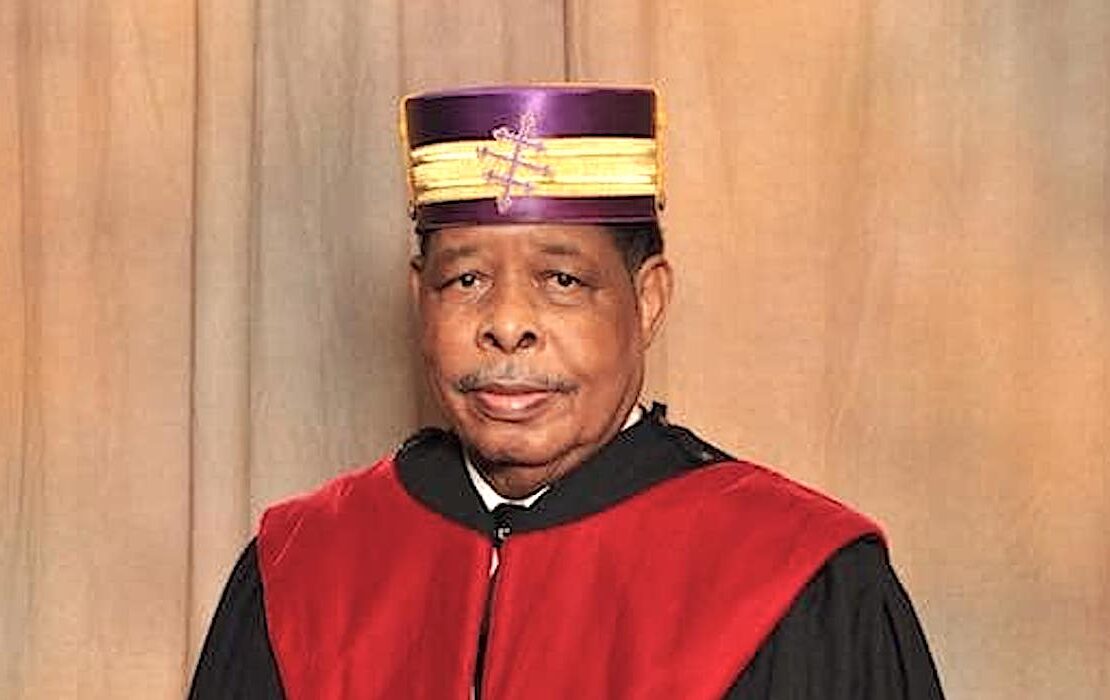Muskogee faces possible $6 million payout
By GARY LEE
At first, Deary Vaughn got mad. He had just found out that the city of Muskogee had demolished his prize property behind his back. It was in 2005, and Vaughn, a Black retired Air Force officer and Master Mason, sitting in the study of his home in Muskogee, read the bitter news in a letter from Muskogee’s municipal authorities. His building, located on a prime lot near the Muskogee inland waterway, had been erased.
“He was livid,” recalled Cassandra Vaughn, his eldest daughter, who was in the same room with her father.
Vaughn immediately vowed to get even. Referring to Muskogee officials in terms too explicit to print, he pledged that he and his wife Esther would make the city pay for their action.
Seventeen years later, Vaughn’s family appears to be close to receiving justice. Last week, the Oklahoma Civil Court of Appeals, Division IV, agreed that Vaughn was wronged.
“It is undisputed City did not provide the Vaughns with a hearing before the Public Nuisance Appeals Board,” Chief Judge John F. Fischer stated in the unanimous decision reached by a three-judge panel and issued in April 19. “The District Court’s determination that city’s actions constituted a taking of the Vaughn’s’ private property without due process is supported by the evidence and … affirmed.”
The opinion by the appellate panel supported earlier rulings in the case.
Family could receive over $6 million
By the account of David Anderson, the attorney for the Vaughns’ family estate, the court’s ruling will require Muskogee to pay the Vaughn family over $6 million. The calculation is based on a nearly $2 million award in Vaughn’s favor that the Oklahoma District court made in 2011, compiled by accumulating interest and including attorney’s fees. The court of appeals suggested that the amount due to the Vaughns should be the original 2011 judgment of $1,952 682 in compensation with interest compounded at 6 percent.
Even if Muskogee settles the Vaughn case, Anderson told the Oklahoma Eagle, it is only the first of hundreds of similar cases the city must address. Anderson and others familiar with the circumstances interviewed by the Eagle estimate that over three decades, Muskogee destroyed over 2,000 homes owned by private citizens without due process. If the homeowners pursue civil rights suits in federal court against Muskogee, Anderson said, the city could owe well over $200 million in civil rights fines, he said.
Muskogee officials expressed disappointment with the ruling in the Vaughn case. Despite a series of judicial rulings stating that Muskogee took Vaughn’s property without due process, city officials maintain that they did nothing wrong.
Muskogee City Attorney Roy Tucker said he would review the case with city councilors during executive session during their regular meeting on May 2. Council action taken on the case were not available at press time.
Sean McKelvey, a private attorney with the law firm Steidley & Neal – who the Muskogee city council has hired to handle the case – could not be reached for comment.
The April 19 judgment climaxed a 17-year tug of war between the Vaughn family and Muskogee officials over whether the city would take responsibility for the destruction of Vaughn’s building.
Following through with their pledge to get even with the city, Deary Vaughn and Esther Vaughn filed a lawsuit in 2007 alleging that the municipality demolished their commercial property without providing notice and an opportunity for the family to be heard.
The Vaughns pursued what is known as an inverse condemnation complaint. It alleges that the city failed to follow state law in its rush to demolish their property. In 2011, the district court sided with the Vaughns and issued a judgment that Muskogee should pay the Vaughns $1,952,682 in compensation.
Muskogee rejects all wrongdoing
The city declined to pay and appealed the ruling. They took the stance that it was their right to destroy Vaughn’s property.
“The city argues that in demolishing the structures on the Vaughn’s property, the city was acting within its police power to abate a public nuisance rather than pursuant to its power of eminent domain to ‘take’ the Vaughn’s’ property,” according to an official 2015 court document of the case of Vaughn v. Muskogee. “The city concludes, therefore, that no compensatory taking occurred.”
Pushing through with the case became a daily ordeal for the Vaughns for years and by their daughter Cassandra’s account “it took a heavy toll on them.”
Esther Vaughn died before in 2016, and Deary Vaughn died in 2020.
Following their father’s passing, the three Vaughn daughters pledged to follow through with the case until the family received justice.
“We agreed to do whatever it takes to ensure that our family gets what is due,” Cassandra told the Eagle.
The Vaughns’ saga illustrates the approach that the city of Muskogee used to destroy and gain control of legions of other homeowners’ property. The demolition was prompted by the determination of a city inspector who deemed the structures “dilapidated and unsafe” after responding to complaints about the condition of structures on Vaughn’s property.
Anderson and other experts of the statutes governing such property cases point out that the step that the city missed in all of the instances was to hold a public hearing to allow the homeowners to respond and correct any problems. In court procedures, the city has maintained that the property was in such disrepair that they were not obligated to hold a hearing before demolition.
‘They are going to face judgment’
The Vaughns’ case appeared to follow a pattern Muskogee used to seize and destroy the properties of many other homeowners. Darwin England’s saga is one of them. The former schoolteacher bought seven houses in different parts of Muskogee in the late 1990s and early 2000s to turn them into rentals to provide him with retirement income. The city condemned and demolished five of the properties, he said in an interview with the Oklahoma Eagle. The decisions to condemn the places were made by Ill qualified inspectors and based on minor, baseless technicalities, England alleges.
“There was nothing wrong with those homes,” he added. “It was clear that the city wanted those properties and did whatever they could to destroy them.”
In none of the cases did the city allow him time to address the issues before they demolished them. Their approach was discriminatory,” England said, “discriminatory against the rights of poor people.”
In another case, the city bulldozed the Muskogee home of Sharon Taff and her disabled son Gregory in 2006 while all their possessions were still inside, according to Anderson, representing the family.
“They would not even let them back inside the house to retrieve their cat or other possessions,” Anderson explained.
Since the loss of the home, the family has lived in poverty, he said.
In a third incidence, the Lacey family had several homes in different parts of Muskogee that were abolished.
The three cases have joined the Vaughn case in a lawsuit the families are pursuing against Muskogee. By agreement, the ruling in the Vaughn case would establish a precedent for the ruling in others.
After years of battling, the Vaughns and England are poised to sue in federal court that the Muscogee City Council violated their civil rights. The suit would make individual council members liable to pay the debt.
“The city council made my parents wait for over 15 years without showing them any mercy or understanding,” Cassandra Vaughn told the Eagle. “My parents endured a lot of pain and stress. Now we are taking the same attitude. They will have to pay what is due. We don’t care if they have to drain their personal bank accounts, or however they get the funds. They will have to pay.”
England, too, is bitter with Muskogee’s city council members and has pledged to hold them responsible.
“They say a prayer before their meetings and then close off any discussion or complaints from private citizens,” he said of them. “They have refused to hear us. They don’t respect us. Now they are going to have to face judgment.”









